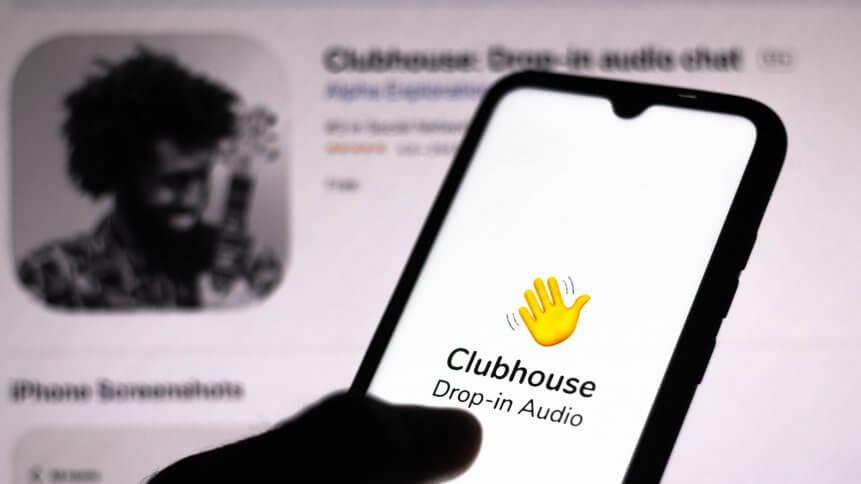Can audio-only social networks compromise data privacy?

- Clubhouse resembles a smartphone-based version of conferences but as it continues to expand, its security and privacy failings have come under increased scrutiny
- The app ‘could be’ recording the voice chats that are taking place on the service
- It has also come under scrutiny for its aggressive collection of users’ contact lists
Speaking of being in the right place at the right time, Clubhouse, the audio-only social network, is the perfect example of being perfectly suited for the pandemic, when people aren’t able to socialize physically. Since its inception, the invite-only app has garnered a huge following while capitalizing on the draw of celebrity influencers on the platform. The catch however is the mounting data privacy concerns.
Clubhouse, still in beta and available only on iOS, offers its users “rooms” that are essentially group audio chats. Its model is built on exclusivity, a strategy that seems to be working effectively, whereby a person would have to be invited from an existing member in order to join Clubhouse. The invitee has to have the phone number of whomever they wish to invite, giving Clubhouse access to iPhone contacts. In simple terms, if users don’t allow access to their contacts, they will not be able to send out invites.
In fact, Clubhouse has a few policies that aren’t exactly privacy-friendly, and to learn about that, one would have to dig beyond the surface of the privacy policies. To understand it further, we should know how the app works, and this invite-only app, structures a series of “rooms,” where speakers lead discussions in front of audiences who can also be called on to participate.
Bloomberg reported that in perhaps the app’s biggest coup to date, Tesla Inc. co-founder Elon Musk appeared in January on Good Time, the Clubhouse show A16Z partner Sriram Krishnan hosts with his wife, Aarthi Ramamurthy, Facebook Inc.’s director of product. The audience quickly ballooned to the maximum 5,000-person capacity Clubhouse has set for rooms, and Musk’s conversation with the CEO of Robinhood Markets Inc., Vlad Tenev, on the newsworthy GameStop Corp.’s stock activity drew national press coverage.
As of February 20th alone, Clubhouse has surpassed 6.8 million users. At any given moment, thousands of conversations are taking place on the app, most with nary a celebrity in earshot. Despite its hype, venture capitalists have hailed Clubhouse as a cultural sensation within their industry, and believe the startup’s next step is to outgrow its need for them.
What happens to the data?
When a new user is accepted as a member, they have a chance to invite two others – and this is where the first of the privacy concerns emerge. As part of the sign-up process, a user is urged to give Clubhouse access to his or her phone contacts, so they can connect with other users of the social network. Reports reckon that Clubhouse is using that information to build profiles of people who aren’t yet members. Additionally, the app allows users to participate in public or private audio chatrooms with the assurance that the content has to be experienced live and not recorded.
YOU MIGHT LIKE

3 data privacy trends to expect in 2021
However, that has not been the case according to Stanford cybersecurity researchers, that found a user found a way to stream feeds from multiple chatrooms recently. Clubhouse then confirmed the spill, which is when data is released to a place that is not authorized to have access to it. The firm had banned the user and installed new “safeguards” to prevent conversations from being streamed again.
Clubhouse told BBC that recording or streaming without the explicit permission of the speakers violates the app’s terms and conditions. Then there are further concerns about Clubhouse recording the voice chats that are taking place on the service. The researchers were also concerned that the Chinese government could gain access to the raw audio files on Clubhouse’s servers because its back-end infrastructure is provided by a real-time engagement API firm called Agora, which has offices in both Shanghai and San Francisco.
Clubhouse’s statistics are a promising sign for the fledgling audio platform, which was launched in March 2020. Influential entrepreneurs and venture capitalists are bullish on crowning Clubhouse the next major social network; it’s reportedly valued at US$1 billion after its latest round of funding. The app is currently free to use and doesn’t show ads or offer paid services but Clubhouse founders indicated that they will introduce payment models “sooner rather than later.”









